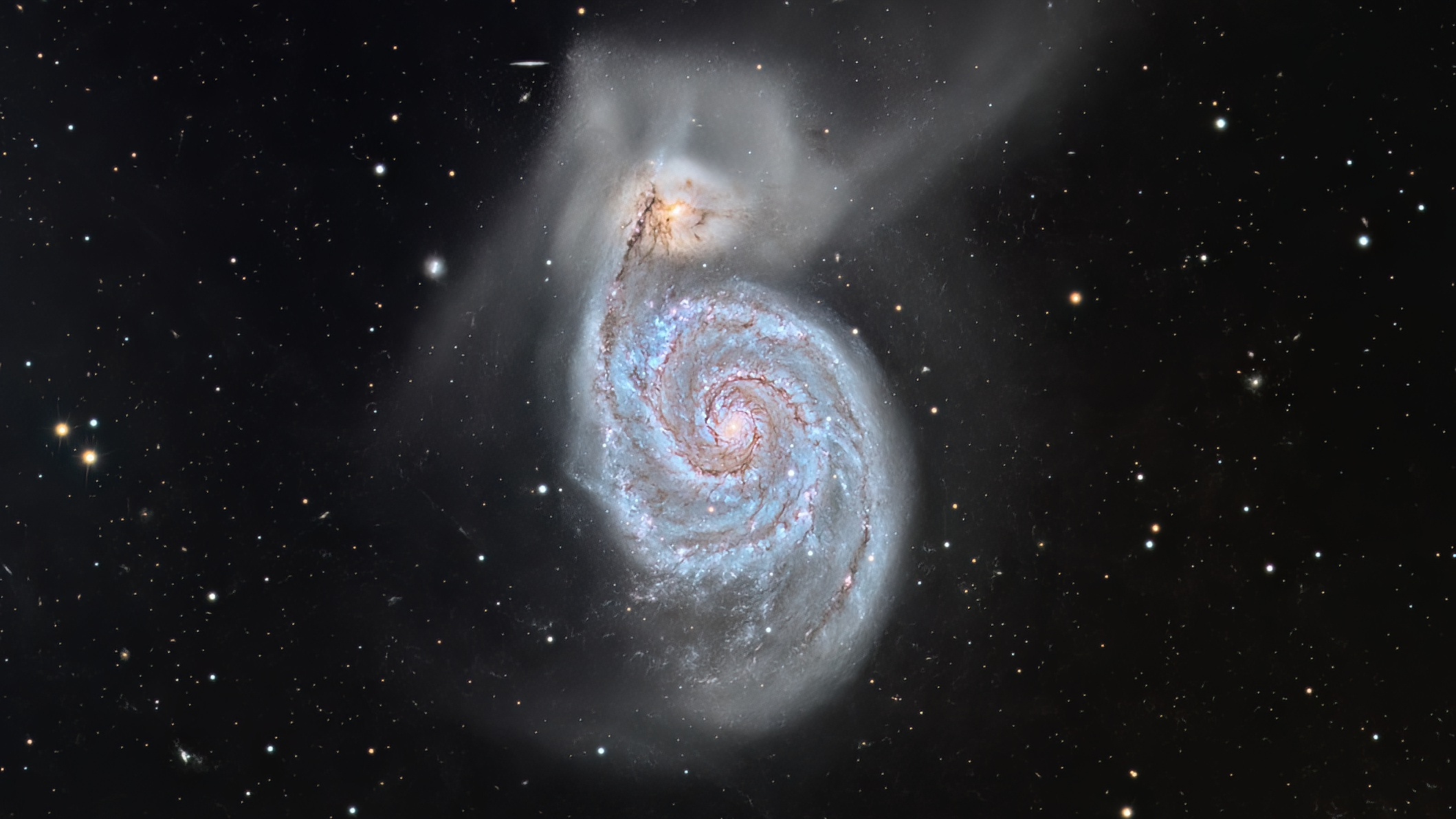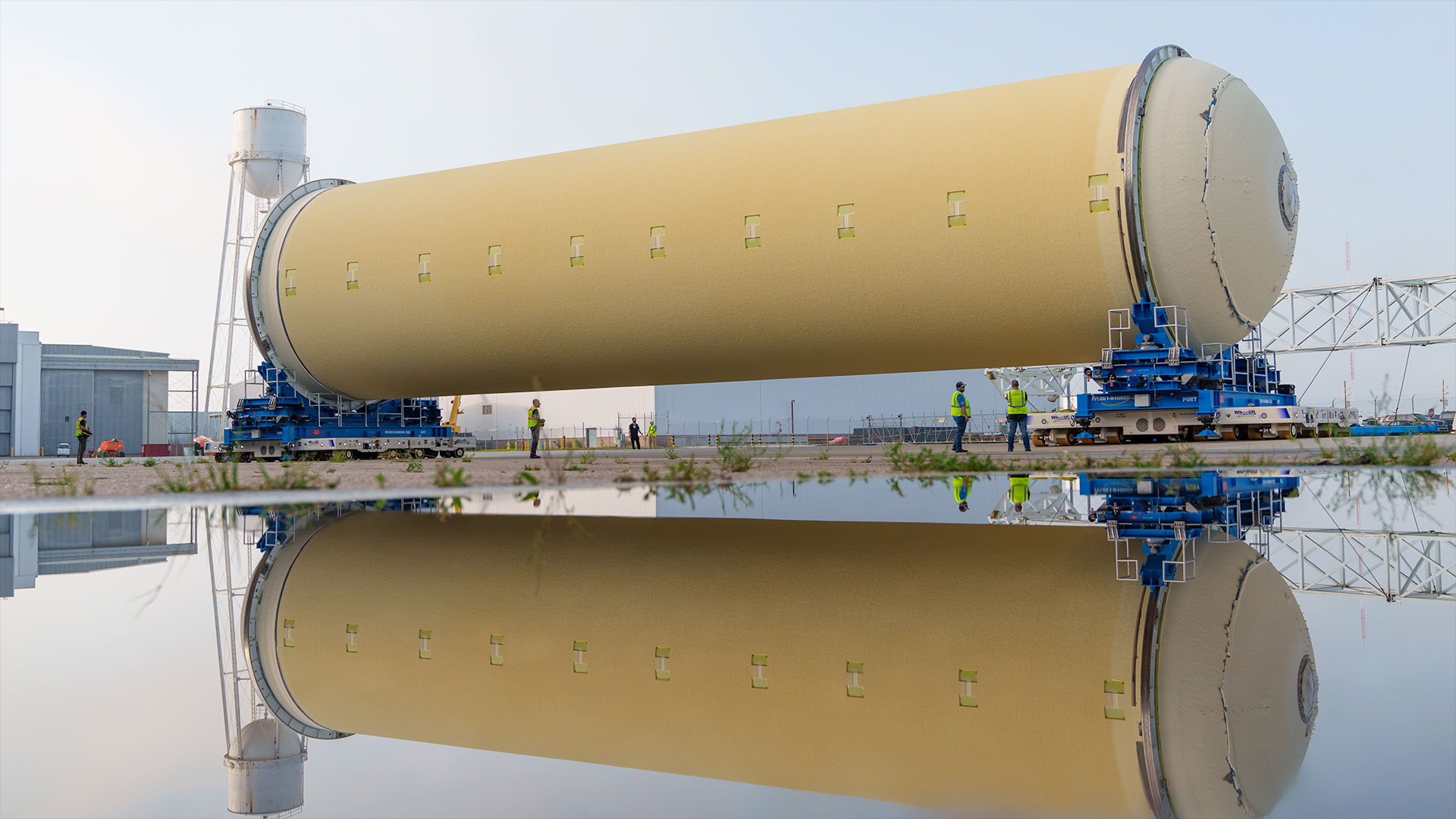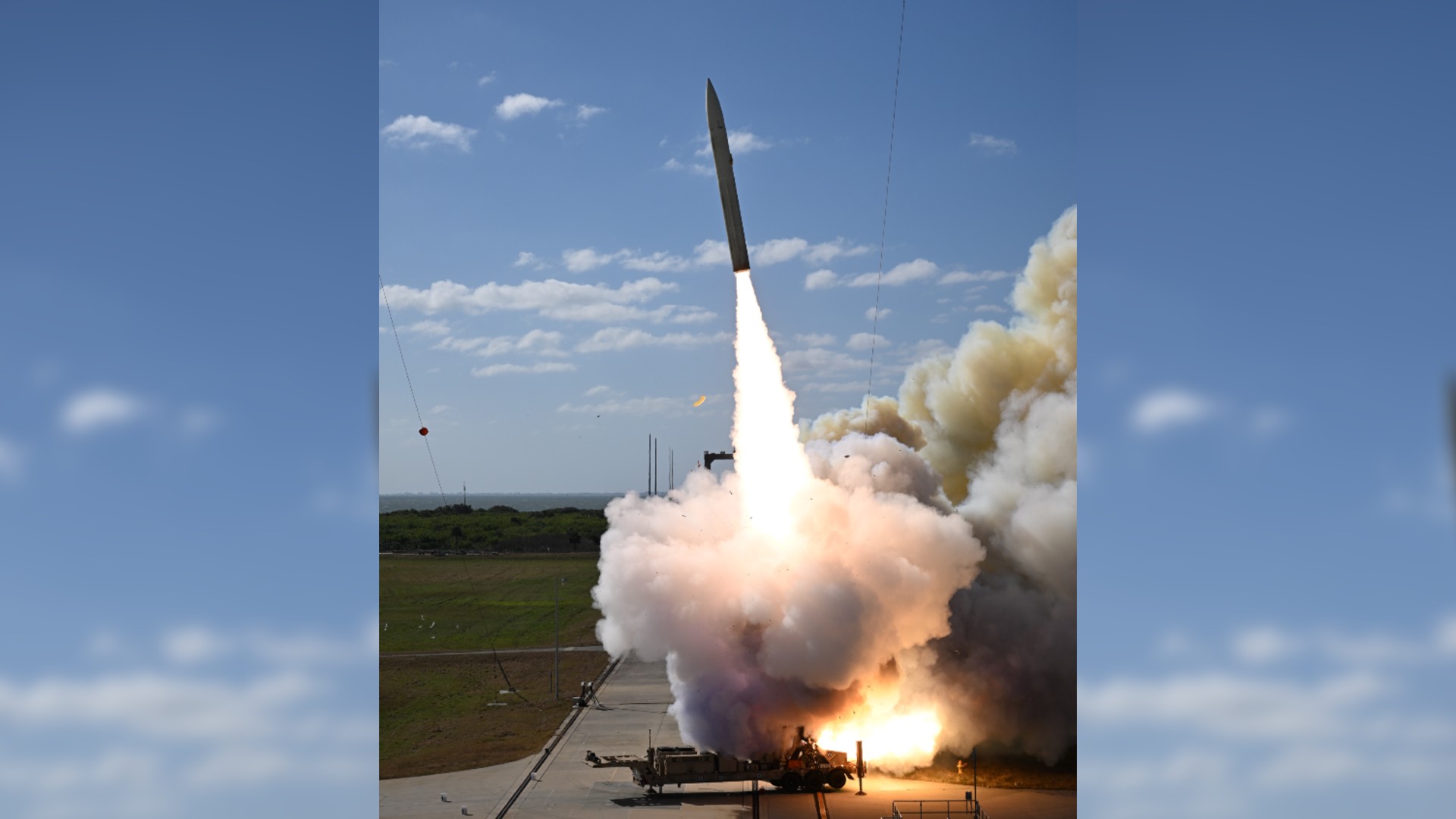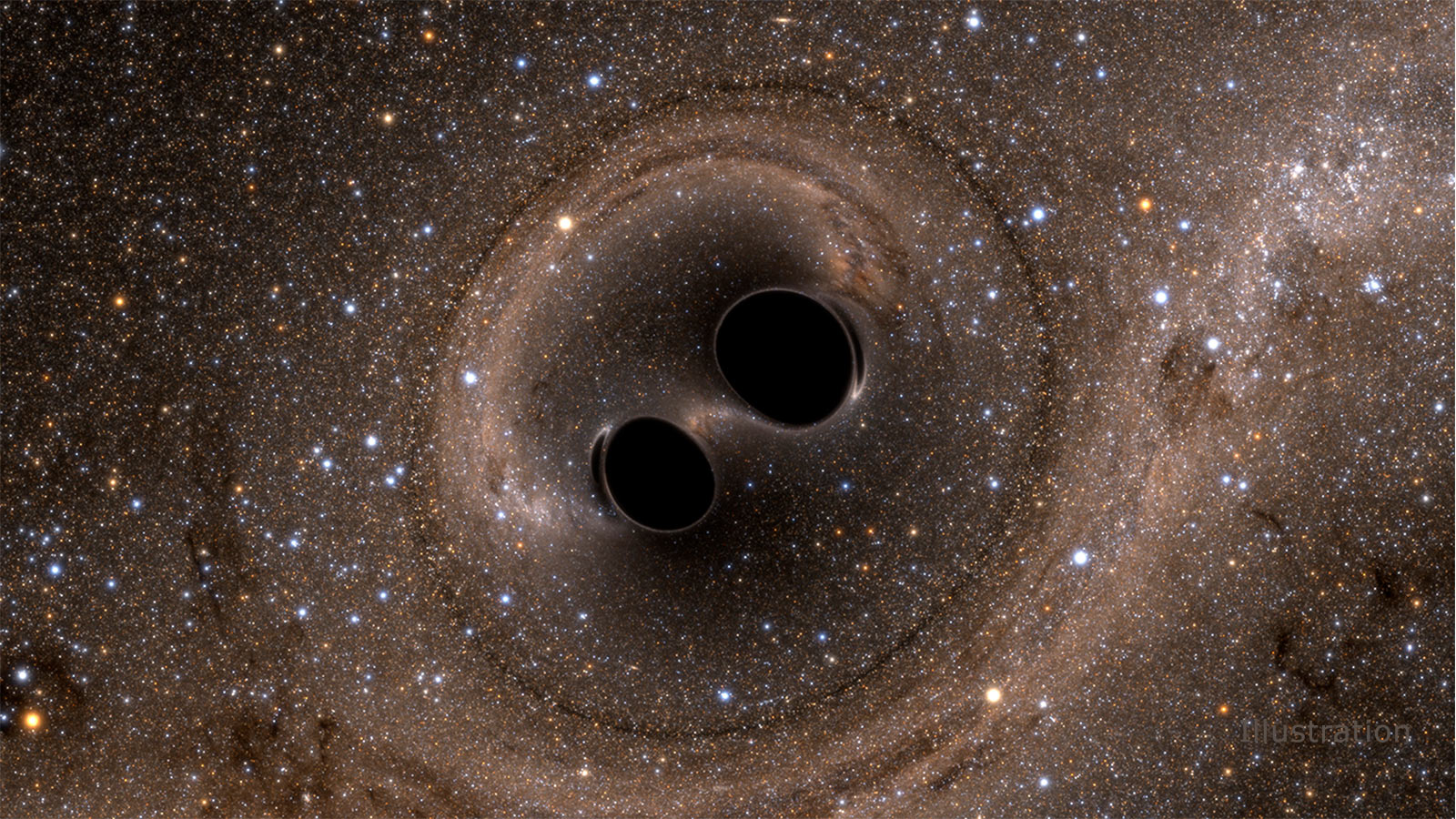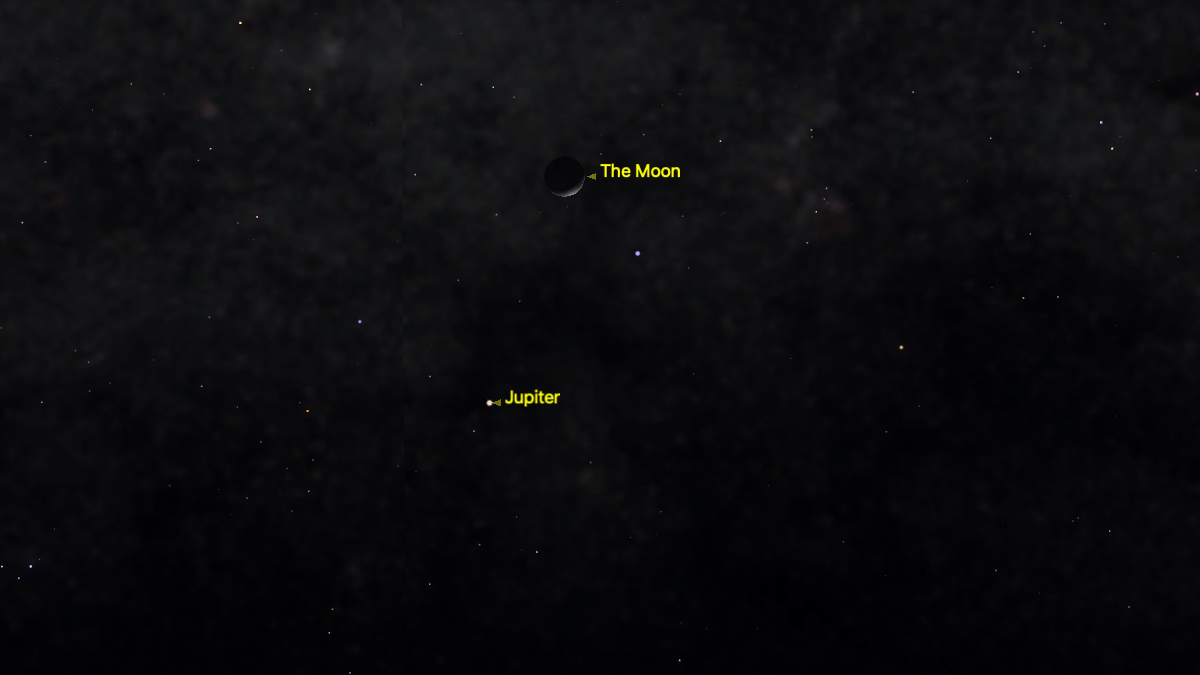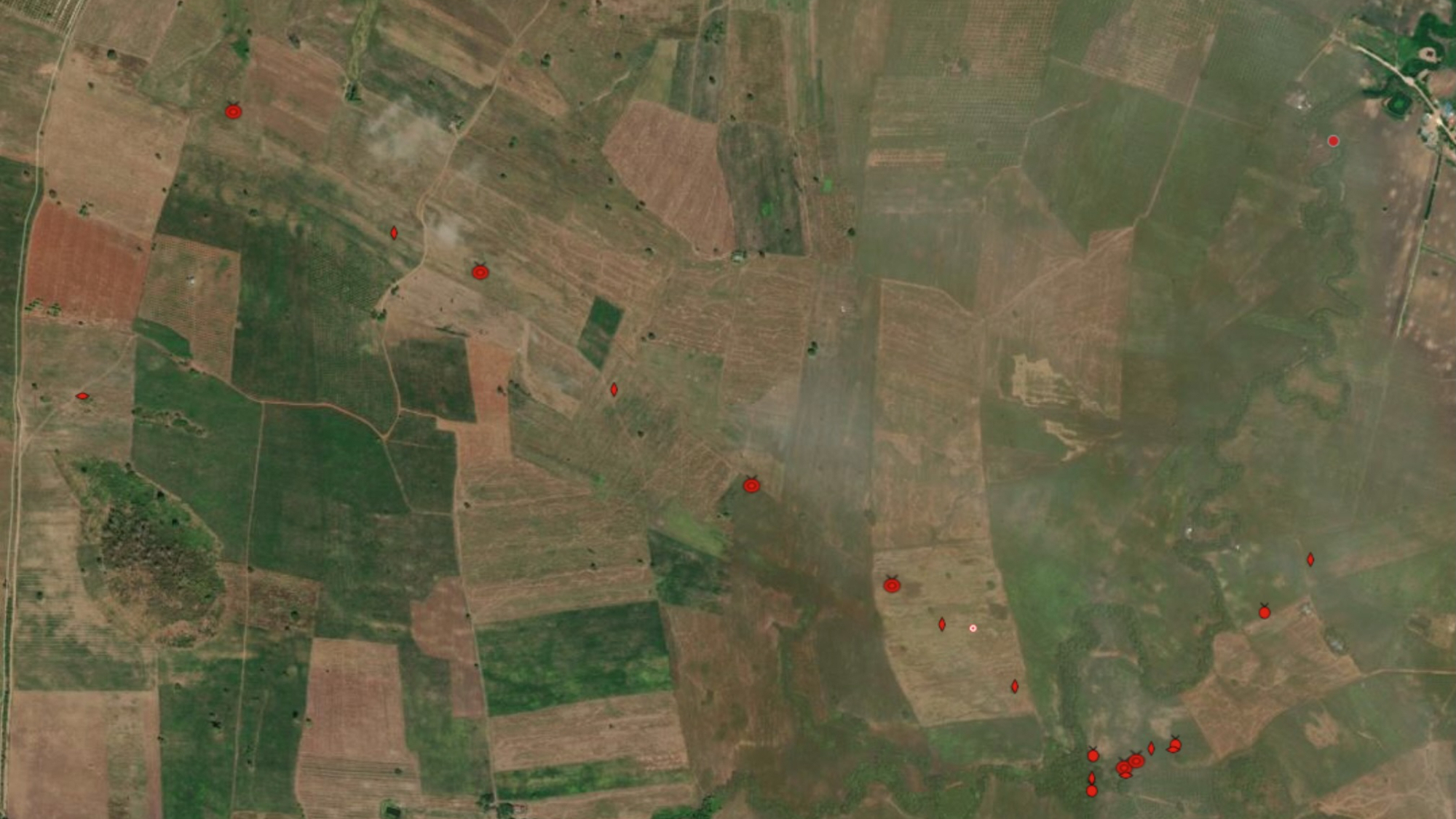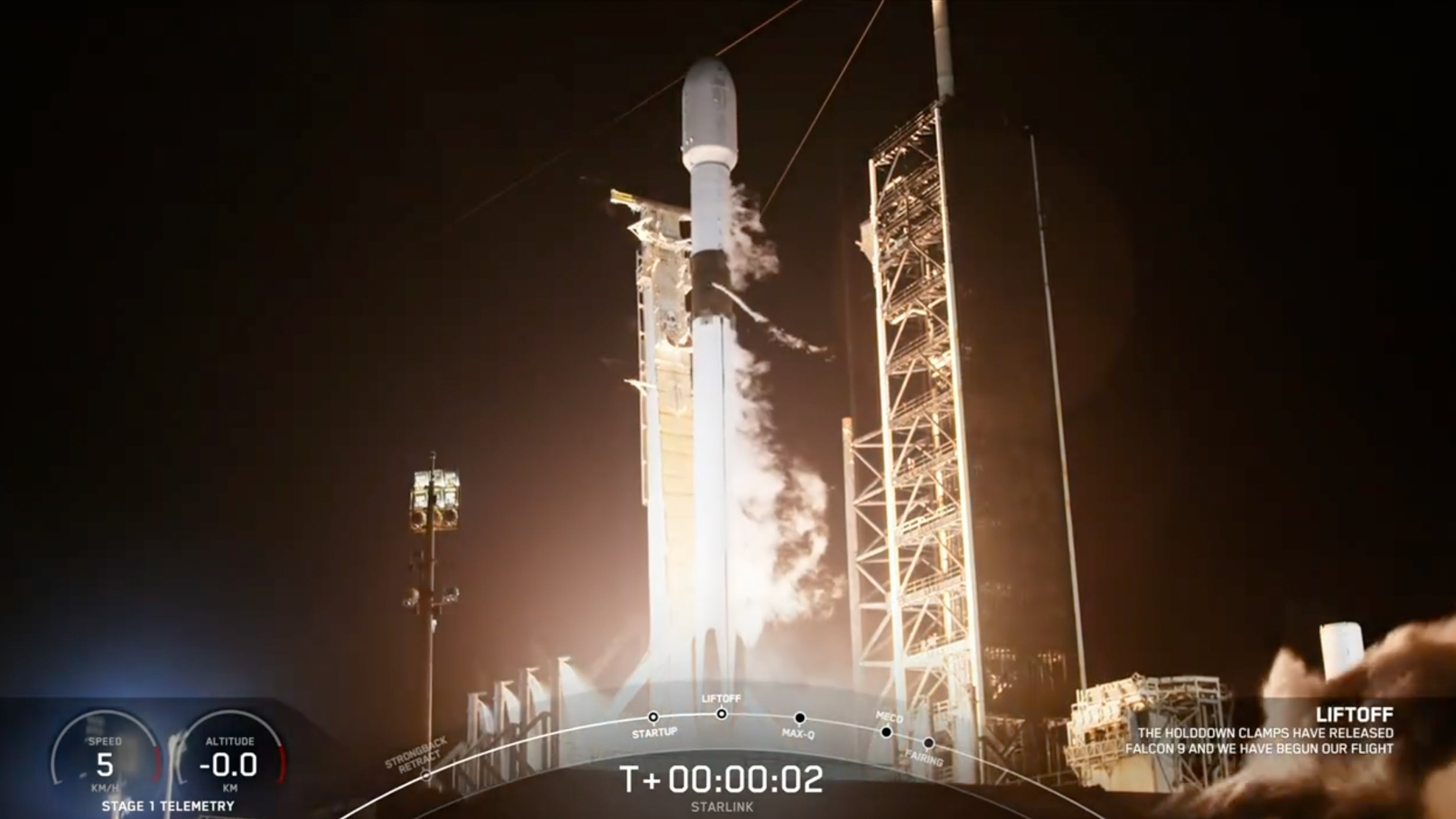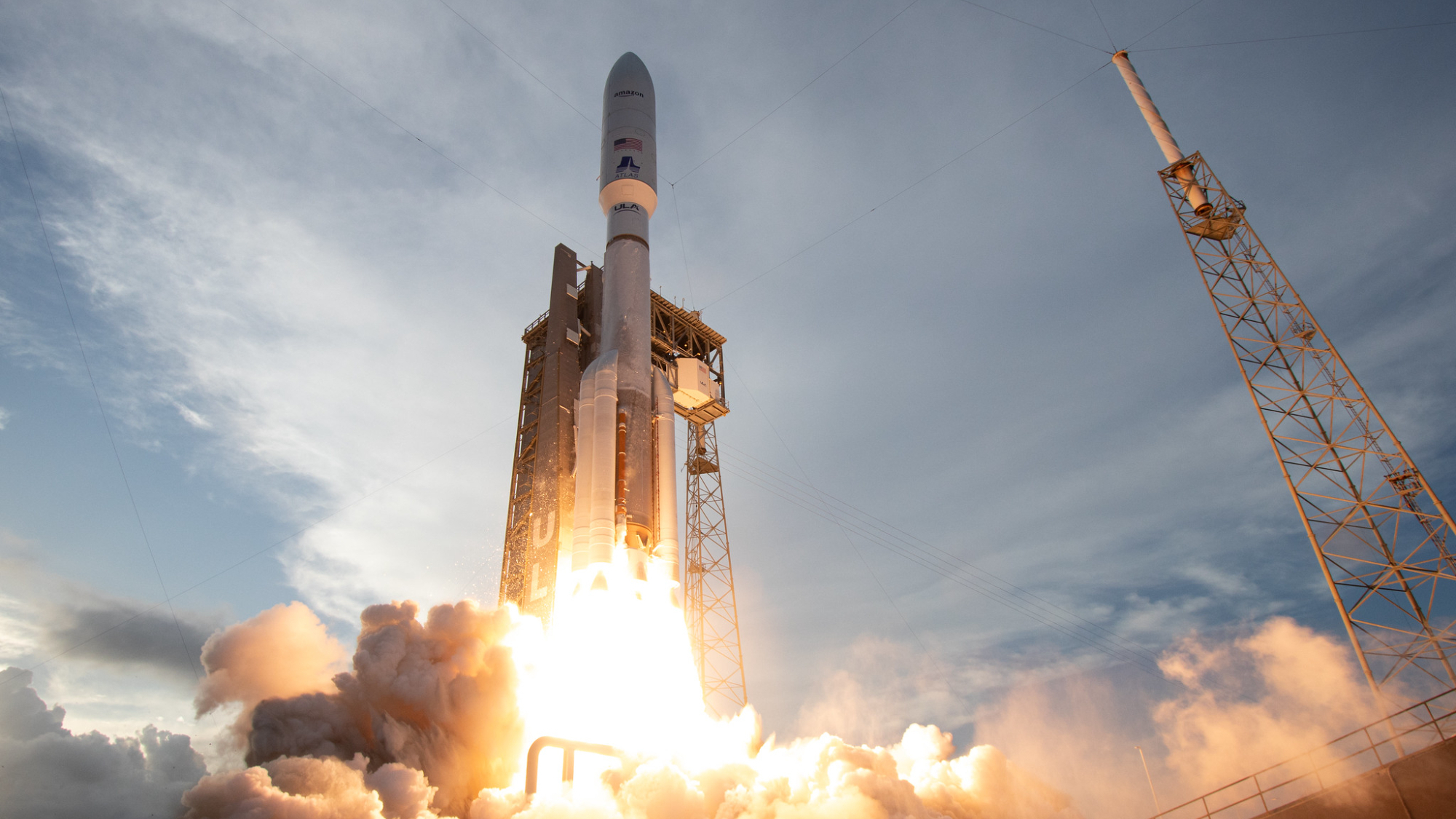
The past day has been a whirlwind for space fans.
Six different rockets launched toward orbit in a dizzying stretch of 18 hours, topping by two the previous record for most liftoffs in a 24-hour span.
The action started in China on Monday (April 28) at 4:10 p.m. EDT (2010 GMT; 4:10 a.m. on April 29 local time), when a Long March 5B rocket sent a batch of satellites for the Guowang broadband megaconstellation to low Earth orbit (LEO) from Wenchang Satellite Launch Center on Hainan island.
Thirty-two minutes later, a SpaceX Falcon 9 rocket lifted off from Vandenberg Space Force Base in California, carrying 27 of the company's Starlink internet craft to LEO.
Then, at 7:01 p.m. EDT (2301 GMT) the same day, a United Launch Alliance Atlas V rocket launched the first 27 satellites for Amazon's Project Kuiper broadband megaconstellation from Florida's Cape Canaveral Space Force Station.
Another Falcon 9 flew from the Space Coast about 3.5 hours later, lofting 23 Starlink satellites from NASA's Kennedy Space Center, which is next door to the Space Force facility.
Let's pause for a moment here to catch our breath, and to take stock: On Monday, four rockets launched from four different sites — one in China, two in Florida and one in California — within a span of approximately 6.5 hours. All of them were successful, and all were devoted to building out LEO broadband constellations, one of which is already established and operational (Starlink) and two of which are just getting off the ground (Guowang and Project Kuiper).
Get the Space.com Newsletter
Breaking space news, the latest updates on rocket launches, skywatching events and more!
Related: Starlink satellite train: how to see and track it in the night sky
But that's not all.
Two more liftoffs occurred on Tuesday morning (April 29), neither of which carried internet satellites.
At 5:15 a.m. EDT (0915 GMT), an Arianespace Vega-C rocket successfully launched the European Space Agency's Biomass forest-monitoring satellite to LEO from Kourou, French Guiana. It was the fourth-ever launch for the Vega-C, and its second since an anomaly caused a mission failure in December of 2022.
Then, at 9:37 a.m. EDT (1337 GMT) on Tuesday, Firefly Aerospace's Alpha rocket took to the skies for the sixth time ever, rising off a pad at Vandenberg with a Lockheed Martin satellite technology demonstrator on board. But things didn't go as planned; a mishap occurred during the separation of Alpha's first and second stages, and the payload was lost.
To sum up: We just saw six orbital launches in about 17.5 hours, five of them successful. That's some unprecedented action, but it may well be a taste of things to come: With SpaceX already launching multiple times per week and several other broadband megaconstellations under construction, we should expect the rockets to keep flying at a blistering pace.
Join our Space Forums to keep talking space on the latest missions, night sky and more! And if you have a news tip, correction or comment, let us know at: community@space.com.

Michael Wall is a Senior Space Writer with Space.com and joined the team in 2010. He primarily covers exoplanets, spaceflight and military space, but has been known to dabble in the space art beat. His book about the search for alien life, "Out There," was published on Nov. 13, 2018. Before becoming a science writer, Michael worked as a herpetologist and wildlife biologist. He has a Ph.D. in evolutionary biology from the University of Sydney, Australia, a bachelor's degree from the University of Arizona, and a graduate certificate in science writing from the University of California, Santa Cruz. To find out what his latest project is, you can follow Michael on Twitter.
You must confirm your public display name before commenting
Please logout and then login again, you will then be prompted to enter your display name.
